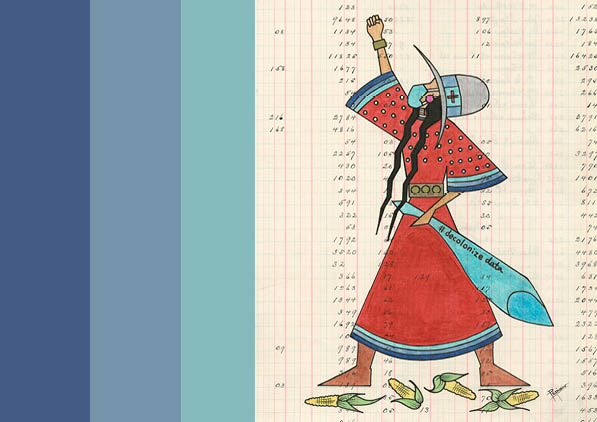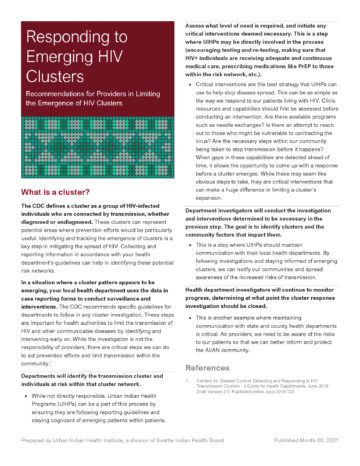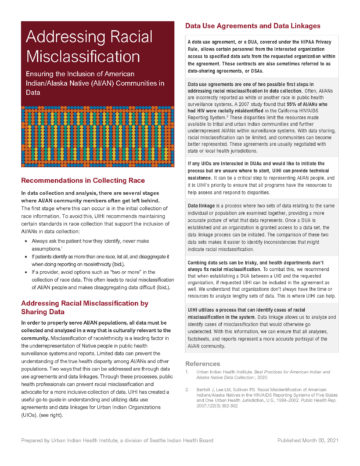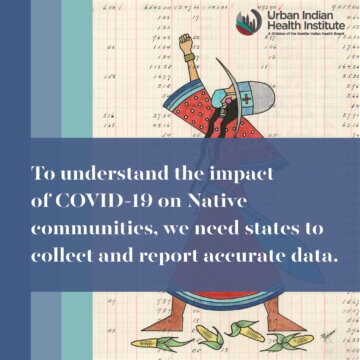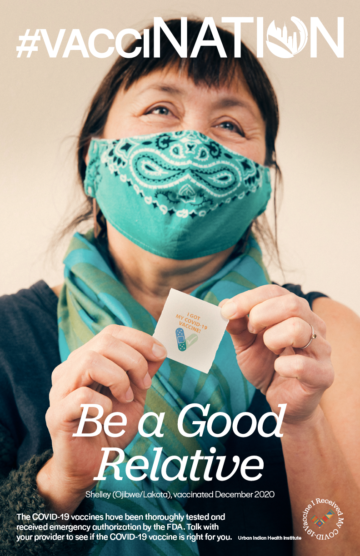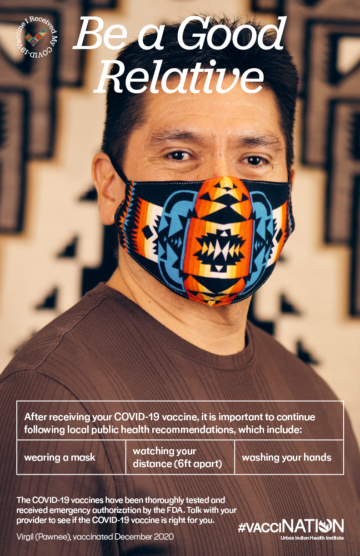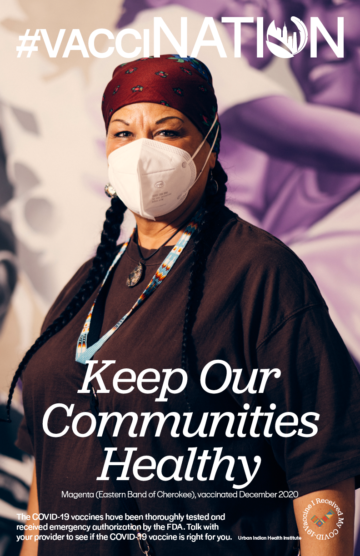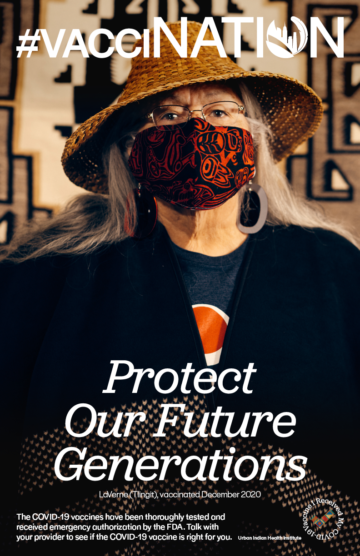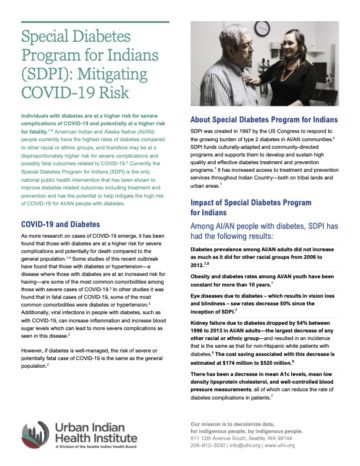Data Genocide of American Indians and Alaska Native in COVID-19 Data: A report card grading U.S. States’ quality of COVID-19 racial data and their effectiveness in collecting and reporting data on American Indian and Alaska Native populations
Background
Reporting of race and ethnicity in COVID-19 public health surveillance data has been woefully inadequate since the beginning of the pandemic, despite it being required for states to track. Poor data collection and reporting standards by U.S. States has resulted in a substantial gap in understanding the disproportionate impact of COVID-19 on American Indians and Alaska Natives.
This lack of data directly impacts the ability of local, state, federal and tribal public health authorities to address the COVID-19 virus and limits policy makers’ ability to make data-driven decisions for equitable policy and resource allocation.
Urban Indian Health Institute (UIHI) analyzed COVID-19 data from all 50 U.S. States, grading them on the collection and reporting of COVID-19 racial data. The report highlights the impacts of the poor COVID-19 racial data collection and reporting practices and provides recommendations to address them.
The report provides insights into the shortcomings of the public health surveillance systems in prioritizing the collection of race and ethnicity data.
D+
The United States overall grade
“This information is meant to address the data genocide happening to Indigenous people. We must urge state and federal policy actions to respond to the parallel crisis we are facing in our public health data systems.”
– Abigail Echo-Hawk (Pawnee), Director of Urban Indian Health Institute
Recommendations for Collecting and Reporting Race/Ethnicity
Mandate the collection and reporting of race/ethnicity for all COVID-19 cases. To develop COVID-19 response efforts that are data- and equity- driven, state and federal governments must mandate the collection and reporting of race/ethnicity for all COVID-19 cases.
Enforce the collection and reporting of race/ethnicity by providing resources, incentives, and penalties. State and federal governments must not only mandate the complete collection and reporting of race/ethnicity, but also must hold stakeholders accountable with enforcement mechanisms.
Resource the overhaul of public health surveillance systems nationally. The Council for State and Territorial Epidemiologists has launched a campaign titled Data: Elemental to Health, that calls for the federal investment in reforming and maintaining surveillance systems. The goal is to modernize public health data collection into a seamless and integrated framework, which will create a surveillance capability suitable to safeguard the health of the nation.
Standardize the collection and reporting of race/ethnicity by implementing Office of Management and Budget (OMB) 1997 standards. Implementing OMB standards for race/ethnicity is a critical first step that allows greater comparability of racial information across areas and ensures racial categories align with self-identification of race.
Avoid grouping populations in homogenizing categories such as “Other” or “Multiracial”. Grouping populations in a single racial category, such as “Other” or “Multiracial”, results in an erasure of that population in the data and subsequently in public health response.
Disaggregate the “Multiracial” category. It is important to disaggregate the “Multiracial” category in the collection and reporting of data to adequately capture racial identity. AI/AN are one of the largest growing multiracial groups in the U.S., and data collection and reporting should reflect this diversity.
Digital Toolkit
With your help, our coordinated efforts will hold state leaders accountable for collecting and reporting data on American Indians and Alaska Natives accurately going forward. Use our digital toolkit to access key messaging points, sample content, and social media graphics.
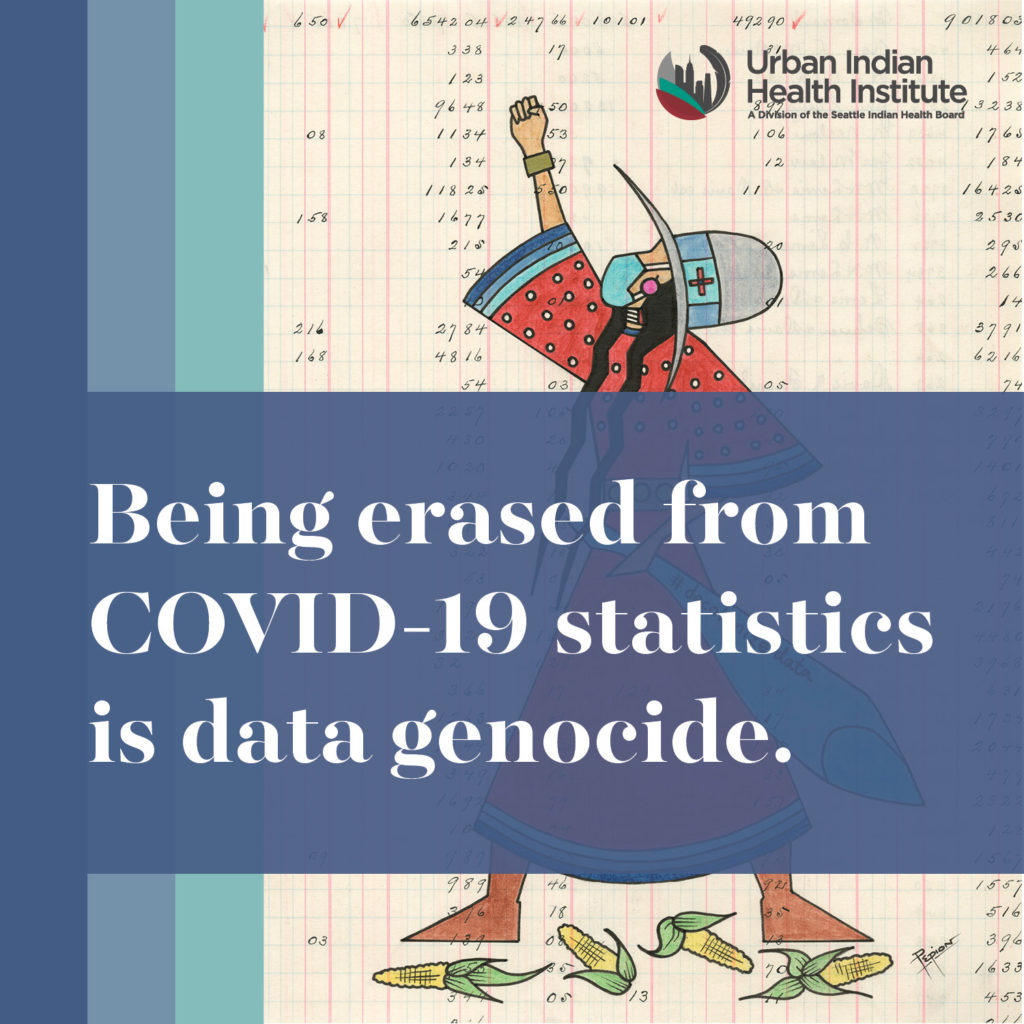
Report Card


